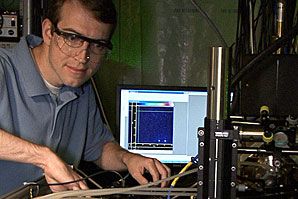Ultra pure silicon could pave way for more quantum computing research
Silicon that’s better than 99.9998 per cent pure is just the job for cutting edge research

US scientists have figured out a way of producing ultra-pure silicon that could be used to advance research in quantum computers.
Until now, researchers needing pure silicon have had to rely on 10-year-old samples from a plutonium plant in St. Petersberg, Russia. These samples are also very expensive and dwindling in quantity.
Silicon that is as pure as possible is needed in quantum computing research as it is less prone to interference than silicon normally found in processors. The research needs a particular isotope of silicon, known as silicon-28. Normal wafers of silicon contain up to eight per cent of another isotope, silicon-29, and this mix of isotopes can lead to interference within quantum systems.
According to a research paper published in the Journal of Physics D: Applied Physics, researchers at the National Institute of Standards and Technology (NIST) in Maryland have devised a much cheaper and easier way of making silicon-28 samples for research that are 99.9998 per cent pure using mass spectrometry equipment found in many labs.
Using this equipment, the team was able to produce silicon ions from commercial silane gas. The isotopes are separated in a magnetic sector analyser before being deposited onto a silicon substrate.
These thin films of silicon-28, while very pure, are produced in very small quantities, but enough to allow research on quantum computing.
One of the researchers, Dr Joshua Pomeroy told BBC News that the advance was an unexpectedly simple solution.
Get the ITPro. daily newsletter
Receive our latest news, industry updates, featured resources and more. Sign up today to receive our FREE report on AI cyber crime & security - newly updated for 2024.
"We had what often happens in science, which is that we had an apparatus whose purpose had come to an end. And we had a problem that needed solving, and we married them up," he said.
Researchers had previously relied on samples of pure silicon-28 from an experiment in Russia to calculate Avogadro's number the number of atoms in one mole of a pure substance - in this case silicon. However, this experiment has been the only source of silicon-28 up until now.
The new method should provide enough material for research into quantum computers to continue and also allow other researchers around the world to make their own pure silicon-28.
Rene Millman is a freelance writer and broadcaster who covers cybersecurity, AI, IoT, and the cloud. He also works as a contributing analyst at GigaOm and has previously worked as an analyst for Gartner covering the infrastructure market. He has made numerous television appearances to give his views and expertise on technology trends and companies that affect and shape our lives. You can follow Rene Millman on Twitter.
Most Popular






